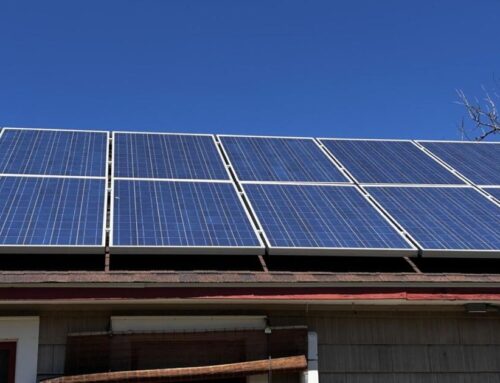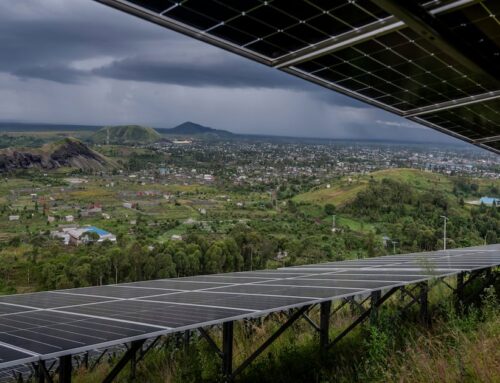The most surprising victim of Trump’s terrible tax agenda
June 30, 2025
The Republican Party’s saving grace is supposed to be its commitment to economic growth and consumer abundance.
Sure, the GOP may see unemployed cancer patients as shiftless mooches — and the Lorax as literature’s greatest villain — but for precisely those reasons, Republicans are allegedly able stewards of industrial development: Unconstrained by concerns about inequality, the environment, or social justice, the GOP will unleash the private sector’s productive potential. Republicans won’t balance Americans’ hunger for cheap gasoline against their enlightened interest in cleaner air or a cooler planet — they’ll get you the cheap fuel now. And they won’t weigh America’s stake in technological supremacy against the risks of unregulated innovation — they’ll give cutting-edge companies whatever they need to achieve global dominance.
At least, this is the impression that Republicans have tried to cultivate, and which voters largely bought last November. According to polling by Democratic data firm Blue Rose Research, Americans in 2024 believed that the GOP would be better than Democrats on the economy and cost of living — but worse on income inequality and the environment — and considered the former issues more important.
But the GOP’s priorities aren’t as advertised. President Donald Trump’s agenda does not ask Americans to accept a dirtier atmosphere and more inegalitarian social order in exchange for cheaper goods, faster technological progress, and national industrial dominance. Rather, it asks us to accept not only greater inequality and environmental degradation, but also, higher prices, slower technological progress, and worse industrial performance for the sake of…I’m not sure what. Perhaps the conservative movement’s cultural grievances? Or Trump’s odd ideological fixations?
In any case, Trump has long made his disregard for affordability and economic growth plain. As of mid-June, Trump’s tariffs were still poised to increase Americans’ annual cost of living by $2,000 on average, while knocking 0.6 percent off of economic growth. His administration’s assault on funding for scientific research, meanwhile, has undermined US tech companies. And his crackdown on immigration is both chasing top-tier talent out of the US and exacerbating labor shortages in the construction industry, thereby slowing the pace of housing and infrastructure development.
Now, with his inaptly named One Big Beautiful Bill (BBB) — which is poised to clear the Senate this week — Trump is rounding out his “worst of both worlds” agenda.
Predictably, his tax cut package would exacerbate inequality, taking health care and food assistance away from poor people in order to shower tax breaks on the wealthy. And the legislation also evinces contempt for the environment, offering new subsidies to American coal producers. More remarkably, however, BBB would also increase electricity prices for consumers while undermining America’s competitiveness in a range of critical sectors.
Specifically, the latest version of Trump’s bill aims to throttle the production of renewable energy in the US. The legislation not only phases out federal subsidies for wind and solar power by 2027, but also imposes a new excise tax on renewable projects that use inputs made in China. Since Chinese firms dominate green energy supply chains, a very high percentage of all wind and solar development in the United States would be adversely impacted by the tax. What’s more, Trump’s legislation would actually reinforce American green energy companies’ dependence on Chinese suppliers by curtailing subsidies to domestic manufacturers of solar panels, wind turbines, and batteries. (As of this writing, some Republican senators are pushing an amendment that would strike the excise tax from the bill. But that amendment’s fate is unclear. And even if it is adopted, Trump’s legislation would still curtail subsidies to the solar and wind industries.)
Taken together, these measures could slash the amount of new clean energy capacity added to America’s grid over the next 10 years by more than 72 percent, according to an analysis from the Rhodium Group.
That scarcity will translate into higher electricity costs for consumers. According to a variety of recent studies, merely ending federal tax credits for wind and solar could push up the average family’s energy bill by as much as $400 per year within a decade.
While increasing US households’ costs, Trump’s bill also reduces American firms’ competitiveness in some of the world’s fastest-growing industries. On one level, this is obvious. Renewables accounted for more than 90 percent of all newly added electricity generation last year. Even if America clings tightly to fossil fuels, demand for wind and solar energy is going to surge worldwide in the coming decades. If the United States actively sabotages its clean power industry, it will cede a larger share of the global energy market to China and other rival nations.
Less intuitively, the BBB also undermines America’s artificial intelligence industry. AI companies need vast amounts of new electricity to power their data centers. And renewables are uniquely well-suited to provide such power. At present, utilities can build wind and solar much faster than new natural gas plants, as there is a years-long backlog in the global market for natural gas turbines. Likewise, nuclear energy takes an enormous amount of time and regulatory wrangling to expand. Thus, if the federal government makes building renewables slower and more expensive, then American AI firms’ progress could also be stymied.
This has led some in the tech industry to criticize the bill. “We urge the Senate to prioritize a reliable and resilient energy mix that advances AI innovation and growth and reject provisions that will harm the U.S.’s ability to compete in the global race for AI and energy dominance,” Janae Washington, a spokesperson for the Information Technology Industry Council, told the Washington Post on Sunday.
Elon Musk, meanwhile, declared Saturday that “The latest Senate draft bill will destroy millions of jobs in America and cause immense strategic harm to our country! Utterly insane and destructive. It gives handouts to industries of the past while severely damaging industries of the future.”
Even one of the bill’s strongest proponents — the pro-fossil fuels advocate Alex Epstein — has lamented its new tax on renewables with Chinese inputs, as has the US Chamber of Commerce.
Nevertheless, as of this writing, that tax remains in the legislation.
It is therefore a mistake to see Trump’s agenda as prioritizing innovation over equality or affordability over the environment. The BBB doesn’t concentrate wealth or degrade the climate in pursuit of some higher objective. Rather, it treats increasing inequality and boosting carbon emissions as ends in themselves — goals that it is prepared to pursue even at great cost to America industrial competitiveness and living standards.
Search
RECENT PRESS RELEASES
Related Post



